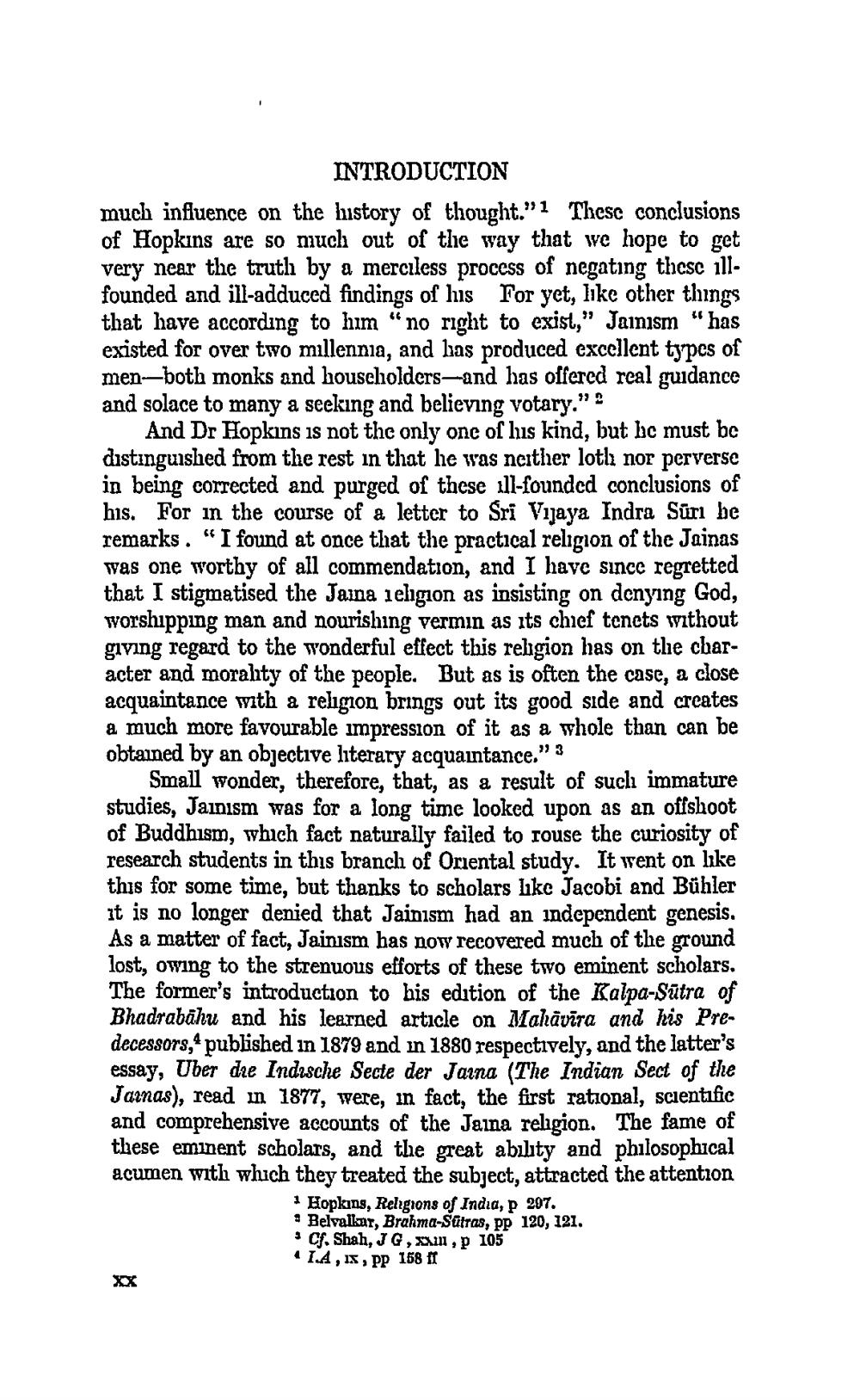________________
INTRODUCTION much influence on the history of thought." "1 These conclusions of Hopkins are so much out of the way that we hope to get very near the truth by a merciless process of negating these illfounded and ill-adduced findings of his For yet, like other things that have according to him "no right to exist," Jainism "has existed for over two millennia, and has produced excellent types of men-both monks and householders-and has offered real guidance and solace to many a seeking and believing votary." "
And Dr Hopkins is not the only one of his kind, but he must be distinguished from the rest in that he was neither loth nor perverse in being corrected and purged of these ill-founded conclusions of his. For in the course of a letter to Sri Vijaya Indra Suri be remarks. "I found at once that the practical religion of the Jainas was one worthy of all commendation, and I have since regretted that I stigmatised the Jaina 1eligion as insisting on denying God, worshipping man and nourishing vermin as its chief tenets without giving regard to the wonderful effect this religion has on the character and morality of the people. But as is often the case, a close acquaintance with a religion brings out its good side and creates a much more favourable impression of it as a whole than can be obtained by an objective literary acquaintance." 3
Small wonder, therefore, that, as a result of such immature studies, Jainism was for a long time looked upon as an offshoot of Buddhism, which fact naturally failed to rouse the curiosity of research students in this branch of Oriental study. It went on like this for some time, but thanks to scholars like Jacobi and Bühler it is no longer denied that Jainism had an independent genesis. As a matter of fact, Jainism has now recovered much of the ground lost, owing to the strenuous efforts of these two eminent scholars. The former's introduction to his edition of the Kalpa-Sutra of Bhadrabahu and his learned article on Mahavira and his Predecessors, published in 1879 and in 1880 respectively, and the latter's essay, Uber die Indische Secte der Jaina (The Indian Sect of the Jamas), read in 1877, were, in fact, the first rational, scientific and comprehensive accounts of the Jaina religion. The fame of these eminent scholars, and the great ability and philosophical acumen with which they treated the subject, attracted the attention
XX
1 Hopkins, Religions of India, p 297. Belvalkar, Brahma-Sutras, pp 120, 121.
Cf. Shah, JG, xx, p 105 IA, Ix, pp 158 ff




